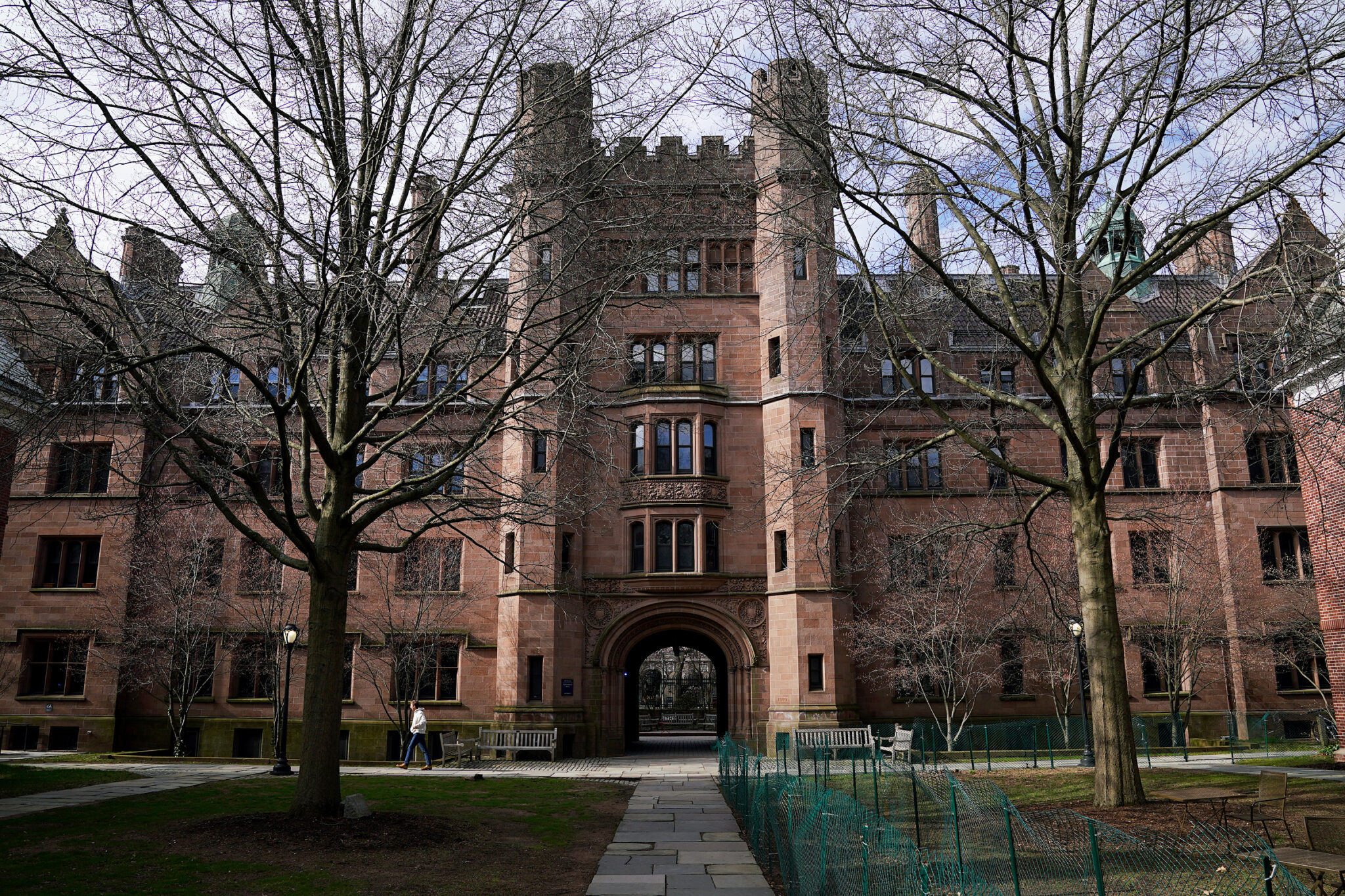Yale under investigation for ‘response to complaints of alleged discrimination,’ details unclear
The United States Department of Education opened a Title VI Shared Ancestry investigation into Yale and four other schools, per the most recent listing of cases by the U.S. Department of Education’s Office for Civil Rights. Yale officials did not clarify the details surrounding what they called the “one specific event” prompting the investigation.

Tim Tai, Senior Photographer
Yale is among the most recent universities under a Title VI Shared Ancestry investigation, according to the U.S. Department of Education’s Office for Civil Rights’ most updated list of open cases.
The investigation into Yale, opened on Monday, joins investigations opened into four other institutions on Monday and Tuesday — including Northwestern University, Arizona State University, Abraham Lincoln University and Ann Arbor Public Schools. Title VI of the Civil Rights Act of 1964 prohibits recipients of federal funds from discrimination on the basis of race, color or national origin.
“Yale received a letter from the Department of Education seeking information about its response to complaints of alleged discrimination related to one specific event,” University spokesperson Karen Peart wrote to the News. “We look forward to working cooperatively with the Department to demonstrate conclusively that Yale’s response met and exceeded its obligations to address complaints of discrimination.”
The University did not immediately respond to the News’ inquiry into the specific event that prompted the investigation.
A Dec. 5 complaint against the University which was sent to the DOE by the Defense of Freedom Institute for Policy Studies — or DFI, co-founded by Yale graduate and former DOE assistant secretary for planning, evaluation and policy development James Blew SOM ’92 — cites the Nov. 6 “Gaza Under Siege” event, which prompted two students to pen an opinion piece for the Wall Street Journal deeming the event “anti-Israel” after being refused entry. DFI submitted its letter to the federal Office of Civil Rights, seeking a formal investigation.
Yale issued a statement two days later stating that “space constraints” kept some students listening to the event from outside the room it took place in. At least one donor also publicly withdrew his donations that he referred to as “minor” after the event
Since the formal start of the Israel-Hamas war, there has been a slew of related protests and community events amid tensions within the community and student safety concerns regarding antisemitism and Islamophobia.
A Nov. 20 open letter to the Yale administration signed by over 1,500 alumni, faculty and parents decried “the tidal wave of antisemitism” on college campuses across the country, including Yale. The letter added that those who signed support campus free speech, as long as that speech does not violate Title VI of the Civil Rights Act of 1964. They cited a Nov. 7 “Dear Colleague” letter by the DOE Office of Civil Rights reminding institutions receiving federal financial assistance of their legal obligations to ensure “a school environment free from discrimination.”
Palestinian and Muslim students have also expressed concerns about their safety on campus, particularly after a man shot three Palestinian students in Vermont in November. Even before these heightened concerns, in October, a student wrote a message declaring “Death to Palestine” on a whiteboard in Grace Hopper College.
Following the incident, Head of Grace Hopper Julia Adams emphasized the University’s commitment to “academic freedom” in an email to students. A “doxxing truck” also drove around campus with faces of students under the words “Yale’s Leading Antisemites” up to and during the annual Harvard-Yale football game in November.
“In recent months, Yale’s leaders, faculty, and staff have worked diligently to support our students; to apply our policies in a manner that is fair, compassionate and supports the educational environment; and to treat each student with the care and respect we would expect for ourselves,” Peart wrote to the News.
Peart added that the University takes student concerns seriously and evaluates each complaint under University policies to determine whether allegations are supported by facts.
In a complaint filed earlier this month, a group of Jewish Harvard students sued the university seeking an injunction to put an end to Harvard’s alleged Title VI violations which they claim have included “rampant” antisemitism.
Since Hamas’ Oct. 7 attack in Israel, in which, according to Israel’s Foreign Ministry, Hamas killed 1,200 people and took around 250 as hostages, Israel has unleashed a full-scale military operation in Gaza, killing more than 25,000 Palestinians as of Jan. 21, according to Palestinian health officials. University President Peter Salovey and his administration have issued eight statements in response to events that unfolded on campus related to the Israel-Hamas war.
On Dec. 7, Salovey announced a series of actions to further support those in the Yale community “most affected” by the Hamas-Israel war, particularly noting measures to support Muslim and Jewish student life. The series of steps outlined by the University included increased funding for Kosher dining at the Joseph Slifka Center for Jewish Life at Yale, formalizing the partnership pilot security program with Yale Security and the Slifka Center and the promise of a space for Middle East and North African students.
In the Dec. 7 announcement, titled “Against Hatred,” Salovey also announced that the University has established a standing advisory committee on Jewish life to build on work from the Yale Antisemitism Climate Group formed in 2022, as well as increased educational programming regarding both antisemitism and Islamophobia into the Belonging at Yale initiative and in partnership with the Office of Institutional Equity and Accessibility.
At present, there are over 102 open Title VI investigations listed on the DOE site.







